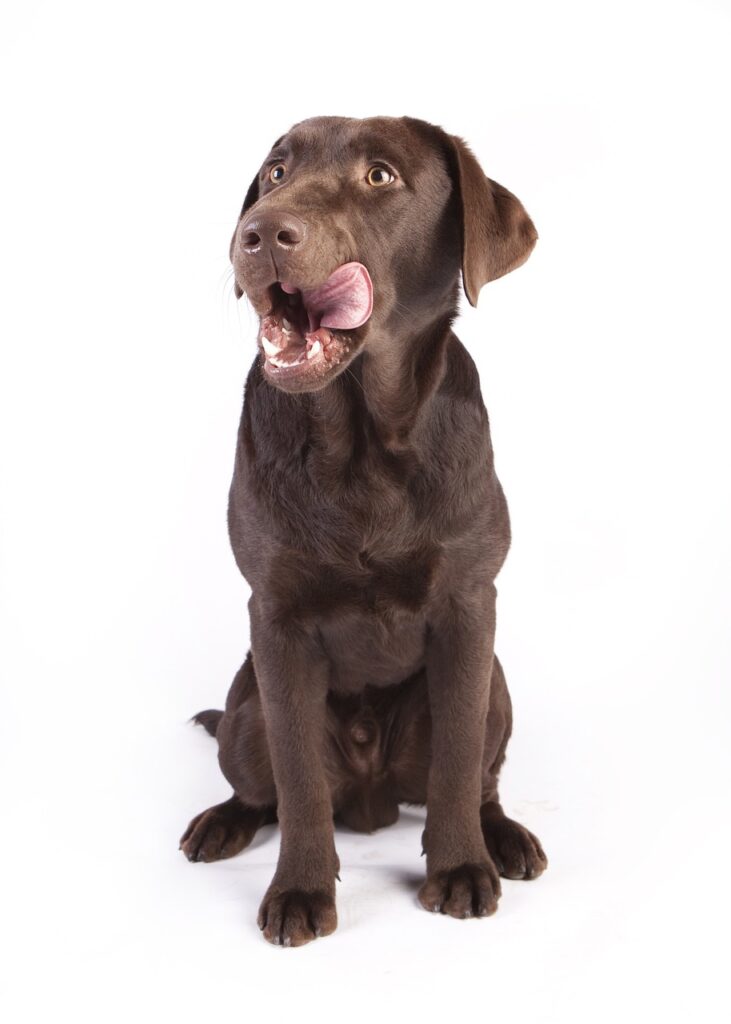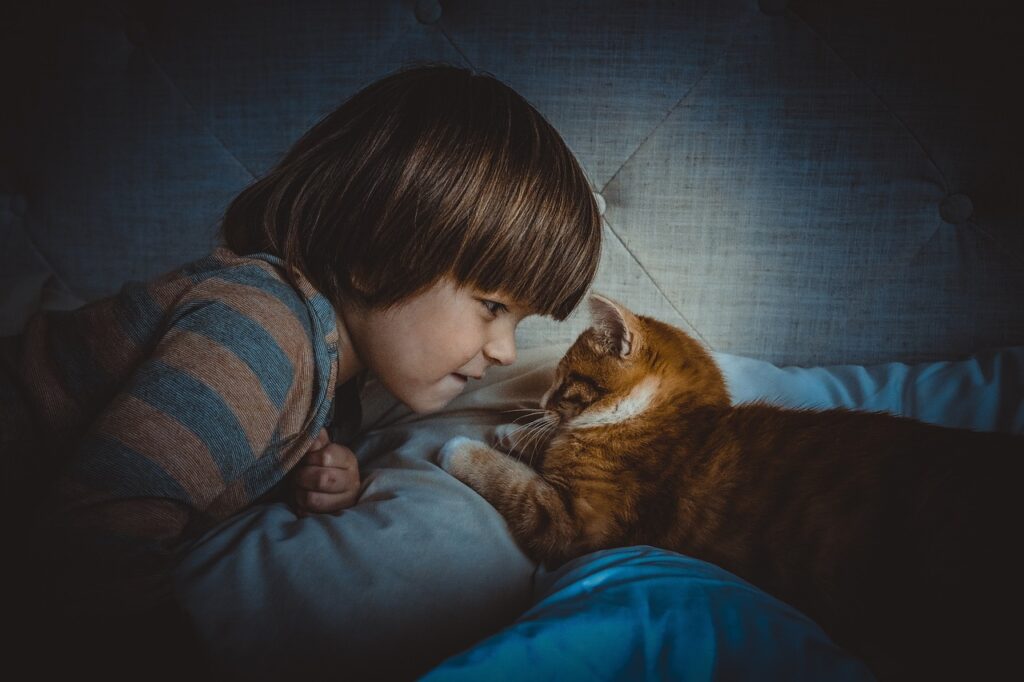Top tips to help minimise stress for your pets (and your family) over the holidays.

If your pet has a behavioural condition, it’s helpful to think of them as a “special-needs” animal. Most of our patients do so well with treatment that we often forget they ever had a problem.
Unfortunately, most special-needs pets find unfamiliar social situations to be challenging. Caregivers can feel stress and disappointment when their pet has a regression in behaviour, and this can lead to relinquishment or even death of the pet.
More commonly, however, an otherwise happy time becomes a sad, awkward, or stressful one. There is no need for this to occur. A small amount of preparation can relieve your worries, and provide a more compassionate and less stressful experience for your pet.
1. Be aware of Trigger Stacking.

The more often your pet is exposed to stressful situations, the more likely they will react inappropriately. This can include moving furniture, new smells, visitors, changes in their daily schedule or even picking up on our stress.
Watch your pet—if your social life is too much for your pet, avoidance is key. A small amount of observing your pet’s signals and anticipation of their needs and concerns can avoid disasters
2. Understand your Fearful Pet.
If your cat or dog is fearful of new people, unpredictable movements, crowds, or noise: protect her. This is not inhumane, or unfair—it’s the better choice for the pet.
We understand that everyone wants to include pets in family events without worry, but this is simply unrealistic for some families.
We should not expect our pets— especially those with special needs—to be able to accomplish this.
Every time your pet has a negative experience involving fear or aggression, she learns from this and encourages her inappropriate behaviour.
One of the first steps of any humane behavioural treatment plan is to avoid circumstances that provoke the pet. It makes sense that for the continued improvement of your pet, we should avoid placing her in a situation in which she may not be able—or should not be expected—to cope.
Furthermore, don’t worry about what anyone thinks of you or let anyone bully or embarrass you. You are the only one responsible for that pet’s continued wellbeing and improvement.


3. Avoid Food Fights.
If you know that your pet can be reactive around food, remove the temptation by securing her behind in another room with an interactive toy to keep her occupied and show she is not being punished.
During the party visit her and bring a small treat if this is something you can safely do.
Additionally, you can post a note at eye level that explains why the door is locked and why you want your dog or cat to stay in the room. This way you do not have to remind everyone not to let her out.
4. Avoid Turf Wars: Protective and Territorial Pets.

Many pets who are inappropriately protective or territorial will be more anxious by the frequent coming and going of guests.
Also, the busier you are, the less likely you are able to monitor your pet.
Again, protecting and confining the pet—even if just behind a baby gate—will allow you to proceed at a more realistic and safer pace.
5. See Evil, Hear Evil: Problems with Yards and Kennels
Please remember that putting an aggressive or fearful dog in the backyard is not a solution.
- First, the dog is not protected from others—dogs or humans—who can enter the yard or look over the fence.
- Second, if people are milling around—particularly children—they can and will open the door to the yard. This could be tragic and it can absolutely be avoided
Dogs should never be left tethered under any circumstances. Such dogs feel trapped and are likely to show increased reactivity. In fact, dogs subjected to these conditions are over-represented in dog bite statistics. This practice goes beyond mere danger—it is outright inhumane treatment of the dog.
6. Sometimes We Don’t All Get Along: Situations Involving Visitors and Guests.

If your house is going to be full of visitors, please consider boarding the pet in a kind and humane facility (ideally the home of a reliable and responsible pet sitter). If you are going to do this, you will need to plan ahead.
- Pet-sitting facilities book and fill early at holidays.
- Make sure that the stay will not make your pet worse—that the facility will be kind and humane and that it can meet the needs of your special pet.
- See how your pet does when staying there under “no stress” circumstances, rather than introducing her to the situation during a busy holiday that is very stressful.
If your pet doesn’t tolerate boarding—and many special-needs pets do not board well—and she won’t eat, loses weight, becomes withdrawn and unkempt, or becomes more fearful or aggressive, see if someone else in your family with whom your pet already has a good relationship can “pet sit.”
If this is not an option, consider hosting celebrations elsewhere so that your pets can be happy in their own home while you party with your friends and relatives elsewhere. This also means there is often less clean up for you!
7. Pets Need a Break from Kids too: Situations Involving Children
If your pets are unfamiliar with the presence of children and families with multiple kids are planning to visit, exercise caution. Keep in mind that children who may have behaved well in one-on-one situations may be more excited when part of a group.
Cats should be kept in a separate area, and dogs should be fitted with head collars during their initial interaction with the children. It’s crucial that the children are of an age and disposition where they can follow your instructions and avoid intentionally or unintentionally provoking the pet (like putting their face too close to a pet- as shown above).
If the children are unable or unwilling to adhere to these guidelines, or if their parents are not prepared or capable of supervising them and dismiss your concerns, take measures to protect and confine the pet, as previously discussed.

8. Guardian Angels: A Note About Pet Sitters.
Please consider using pet sitters who are bonded to your pet and with whom you feel comfortable. A good source for pet sitters is your veterinarian, a certified professional dog trainer, or a friend with another special-needs pet. Regardless, when looking for a pet sitter you want her to have two character traits: she must be responsible and reliable.
- The pet sitter must understand that loving the animal is not enough and that you have created a strategy for helping the dog or cat function as well and happily as she can, and that this strategy keeps everyone sane, safe and healthy.
- The pet sitter must call you (no matter the time of day) if they have a question, if the problem behaviours begin to appear, or if something seems a little off. When you can get this degree of responsibility and reliability from someone, hire them.
Special-needs pets are not helped by being cared for by some random, well-meaning neighbour or by people who do not appreciate their behavioural needs in the way that you do.
9. Yoo-hoo!? What to do if a Visitor is Unavoidable?

If a visitor is unavoidable, you can protect your pet.
- Your pet can be placed behind a locked door (closed door, hook and eye or sliding bolt at the very top of the outside of the door) or a secure crate in a quiet locked room before anyone arrives. Consider the use of calming white noise.
- It’s best to do this 15 to 30 minutes before an expected arrival so that the dog and humans have a chance to calm.
- Your pet can have a food toy, treat ball, chew toy, et cetera, to indicate that she is not being punished and to keep her occupied. Video monitoring is a fantastic tool (you can check on them without opening the door)
- No one is to visit you without advance notice. If someone is coming to visit, they must call a minimum of 15 minutes before they expect to arrive.
- If your pet has any fear or aggression towards unknown people, they should not be permitted to visit guests, and she should should be in her secure “safe haven” area. This is better for everyone and has the advantage of ensuring that no tragedies occur.
- Some dogs require their guardians be present with them for the first 10-15mins of guests arriving. This is OK. Do what you need to do to help your pet settle.
10. Consistency is Key: Exercise, Food and Predictability
Ensure your pet is well exercised before the big event- both early in the day and again just before the party. Use the pet’s standard for real aerobic exercise and tiredness, not yours. You will likely tire first, but tired pets are less anxious and more calmly behaved.
Keep as regular a schedule as possible and stick to the pet’s regular diet. The more changes, the more unstable the pet will be. Also, if she has an upset stomach because of too many rich foods, she will be more anxious and unpredictable. Neither you nor your pet need this.
11: BOOM: Noise Fears, Phobias, and Reactivity


If your pets are afraid of noise—holidays like New Year’s Eve are hellish, nightmarish situations for these animals.
The best prevention and treatment involves a short-acting anti-anxiety medication before and during the expected raucous explosion.
If you can decrease the dog’s or cat’s sensory perception in a way that is safe and helps them, this is worth considering. This can be via confinement to a quiet, dark room with white noise playing and the use of dog earmuffs to cancel noise (www.muttmuffs.com). Your dog will need to be introduced to these gradually and in a positive manner well before the event.

12. Lastly: A Guardian’s Guilt
Finally, do not feel that by sequestering your pet away you have let your dog or cat down, or that she is paying dearly for your social life. You would be letting her down only if you placed her in an upsetting situation where she became more fearful or aggressive.
These recommendations are compromises that allow you to work with difficult situations with as little worry as possible.
If you give yourself the time to list the circumstances that you think might worry your pet, you will be able to anticipate how to avoid them. Timing is critical here: do not wait until the last minute when you are forced to react rather than to plan or prevent.
If you err on the side of caution, you will find that you and your pet will have a far more enjoyable holiday, and one that is relatively risk-free.
